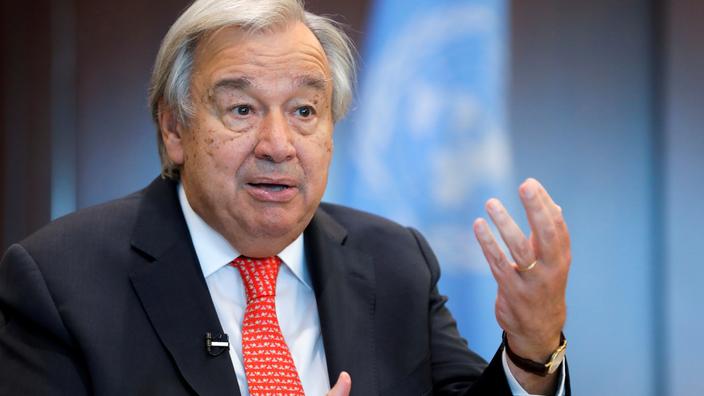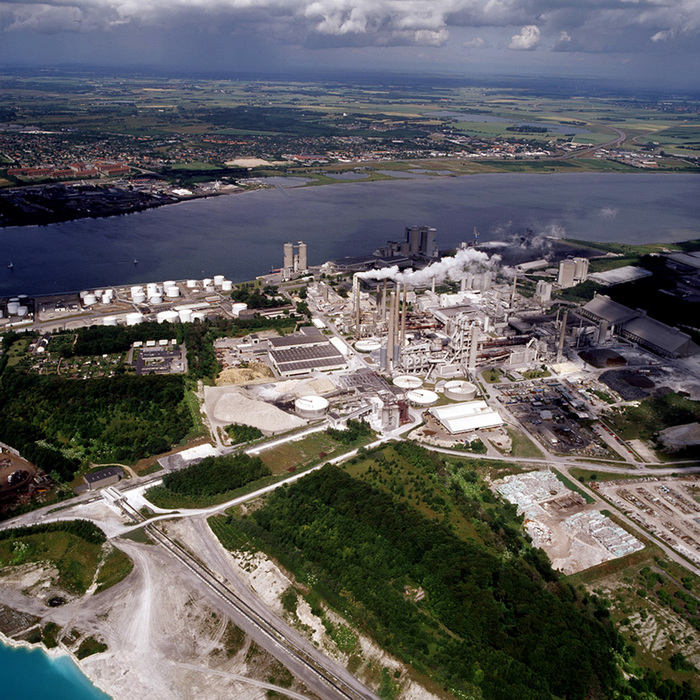The commitments made by the signatory states of the Paris Agreement are leading the world towards a “
catastrophic
”
warming
of + 2.7 ° C, very far from the target of 1.5 ° C hoped for to limit the destructive fallout from global warming , the UN alarmed six weeks before COP26.
Read alsoTo limit global warming, coal, gas and oil must remain underground
The report assessing the national commitments of 191 countries, published on Friday, "
shows that the world is on a catastrophic path towards + 2.7 ° C of warming,
" said UN Secretary General Antonio Guterres.
Overall the numbers are bad
The Paris Agreement aims to limit this warming to well below + 2 ° C compared to the pre-industrial era, if possible + 1.5 ° C, but "
the failure to meet this objective will be measured by the yardstick. the number of deaths and means of subsistence destroyed,
”he insisted, calling on all governments to propose more ambitious commitments.
Read also Many young people anxious by the climate crisis
Under the Paris Agreement, each country was to revise its “
Nationally Determined Contribution
” (NDC)
by the end of 2020
.
But as of July 30, only 113 countries representing less than half of global greenhouse gas emissions (49%) had actually submitted their revised commitments.
With these new promises, the emissions of this group of 113 countries, including the United States and the EU, would be reduced by 12% in 2030 compared to 2010. A "
ray of hope
" which does not however overshadow the “
dark
” side of this picture, noted the UN climate manager Patricia Espinosa.
“
Overall, the greenhouse gas emissions figures are heading in the wrong direction,
” she lamented.
Taking into account all the NDCs - revised or not - of the 191 signatory countries, emissions should increase by 16% in 2030 compared to 2010, while they should be reduced by 40% by 2030 to remain below 1.5 ° C or 25% for 2 ° C.
A "
considerable
"
increase
which "
could lead to a rise in temperature of around 2.7 ° C by the end of the century
" while each additional fraction of a degree multiplies the dramatic consequences.
"COP26 must be a success"
The latest report by IPCC scientists published in August already warned of a risk of reaching the 1.5 ° C threshold around 2030, ten years earlier than estimated, threatening humanity with new unprecedented disasters.
To read also "Sixth report of the IPCC: and if we finally moved on to something else?"
In this context, “
the COP26 must be a success
”, insisted Patricia Espinosa, calling on States to negotiate by being “
pushed not only by the legitimate desire to protect their national interest but also by the objective of contributing to the good. to be of humanity
”.
While a final assessment will be carried out by the end of October, she also hopes for new commitments.
"
Without the action of all countries, and in particular the largest economies, efforts risk being in vain,
" commented COP26 President Alok Sharma for his part. Attention is particularly focused on China, responsible for more than a quarter of global CO2 emissions. President Xi Jinping announced a year ago to aim for carbon neutrality by 2060 and a peak in emissions “
around 2030
”, but without revising his NDC.
Beyond China, the entire G20 is in the crosshairs of climate advocates.
"
It is high time that they were up to it and that they treat this crisis as a crisis
", commented the president of the group of the least developed countries, Sonam P. Wangdi.
"
These countries caused this crisis and despite everything fail to show the necessary leadership to get us out of this
mess," added Mohamed Adow, of the Power Shift Africa think-tank.
"It's time to act
The issue of the responsibility of large economies is one of the recurring tensions on the climate diplomatic scene, as is the issue of financial aid.
The countries of the North pledged in 2009 to increase climate assistance to the countries of the South to 100 billion dollars per year by 2020.
According to OECD figures released on Friday, this aid amounted to 79.6 billion in 2019.
A situation that worries Antonio Guterres.
“
The fight against climate change will only be a success if everyone unites for more ambition, cooperation and credibility,
” he said.
"
It is time for leaders to take a stand and keep their promises, or people in all countries will pay the price
."













/cloudfront-eu-central-1.images.arcpublishing.com/prisa/KMEYMJKESBAZBE4MRBAM4TGHIQ.jpg)

